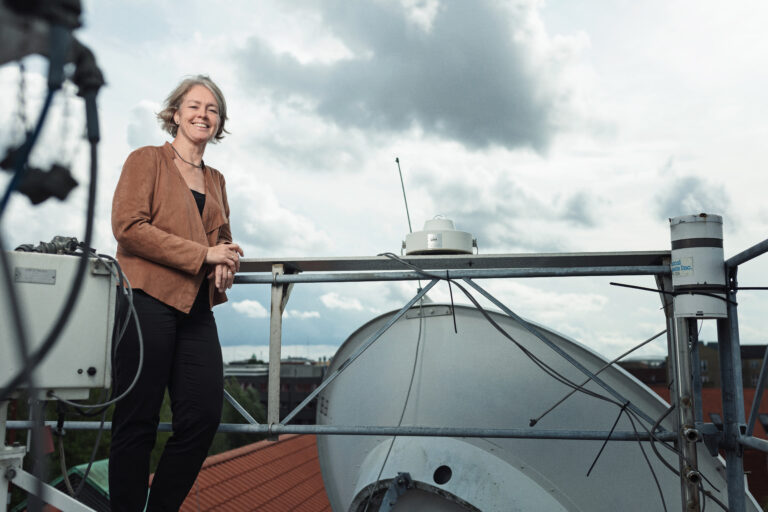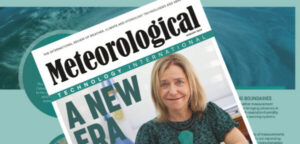Marianne Thyrring became director general of the Danish Meteorological Institute (DMI) in 2013 after many years working in the fields of climate and the environment for the European Commission as well as various ministries in Denmark, including the Ministry of Environment. “I was always curious about the scientific and operational parts of climate and environmental policies, which is what led me to DMI,” she says.
During her earlier years at DMI, Thyrring was involved in making the organization more public-facing and making better use of the large stores of weather-related data it held. “This kind of work really fuels me,” she explains. “In simple terms I like to make things better by implementing change. I am very proud of where DMI is today. DMI has been able to change its profile from a conservative monopoly to a modern public agency focusing on the societal value we can deliver.”
Thyrring notes that during her career to date she has mainly worked in male-dominated environments. “Even though we are working to change this and make the playing field level, I believe that development in gender equality is rather slow. The main reason is that it is still difficult to get female candidates to apply for the very top positions.”
Although the shift to gender equality is slow, Thyrring is seeing more females joining the met industry. “In the past 10 years we have recruited more female meteorologists than male, for example,” she says. “We are also seeing an increase in female climate researchers at DMI, contributing to our diversity.”
To help it achieve equality, DMI has established a network specifically for female leaders, which facilitates mutual support and the exchange of experiences. “By creating this network we aim to empower and inspire our female leaders while promoting an inclusive culture within the organization at DMI,” Thyrring says. “We are convinced that diverse leadership will contribute to a more dynamic and innovative organization.”
Looking at what the future holds for DMI in general, Thyrring continues, “I would like us to take a closer look at our work culture to try to increase productivity. We want to cultivate a culture marked by mutual trust and respect, where all team members can be themselves.”
DMI is also preparing for the start of operation of its new supercomputer, which is being developed alongside met services in Iceland, Ireland and the Netherlands, and is due to come online in late spring 2024. “This will provide earlier and more accurate weather forecasts than ever before and enable us to deliver better weather warnings,” comments Thyrring. “The collaboration, known as the United Weather Centres-West (UWC-W), will also bring changes in our respective organizations as there will be considerable economies of scale when four countries come together to share the same computer and data model.
“Another project that has been a major focus at DMI is that we have been tasked with predicting land-based flooding. We already issue warnings for heavy rainfall, as well as flooding from the sea, but we have not previously been authorized to develop a warning service for river and stream flooding. This initiative was prompted by the devastating floods that hit central Europe in 2021. One of the most important tasks is to give the public and the emergency services the opportunity through our warnings to react fast.”
A longer version of this article originally appeared in the January 2023 issue of Meteorological Technology International. To view the magazine in full, click here.




